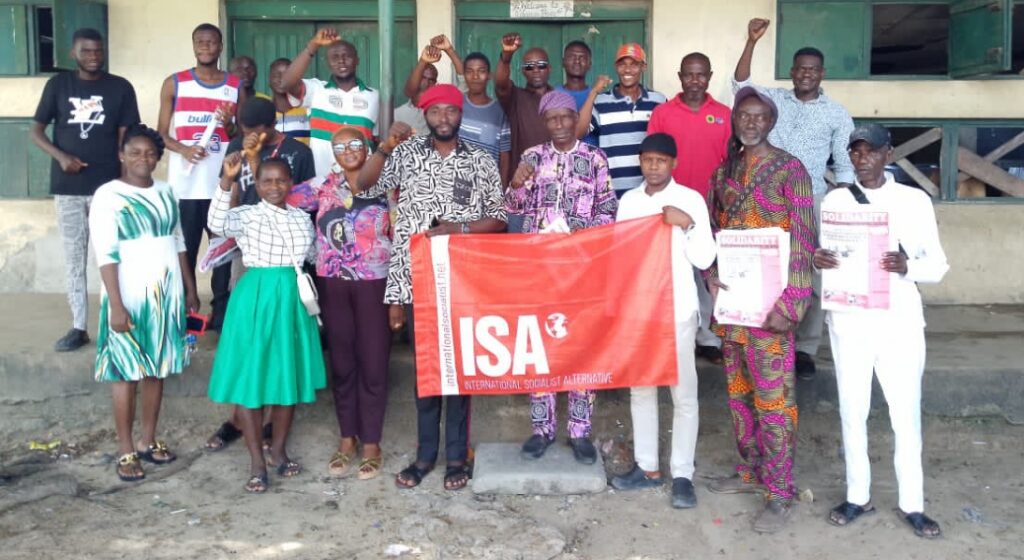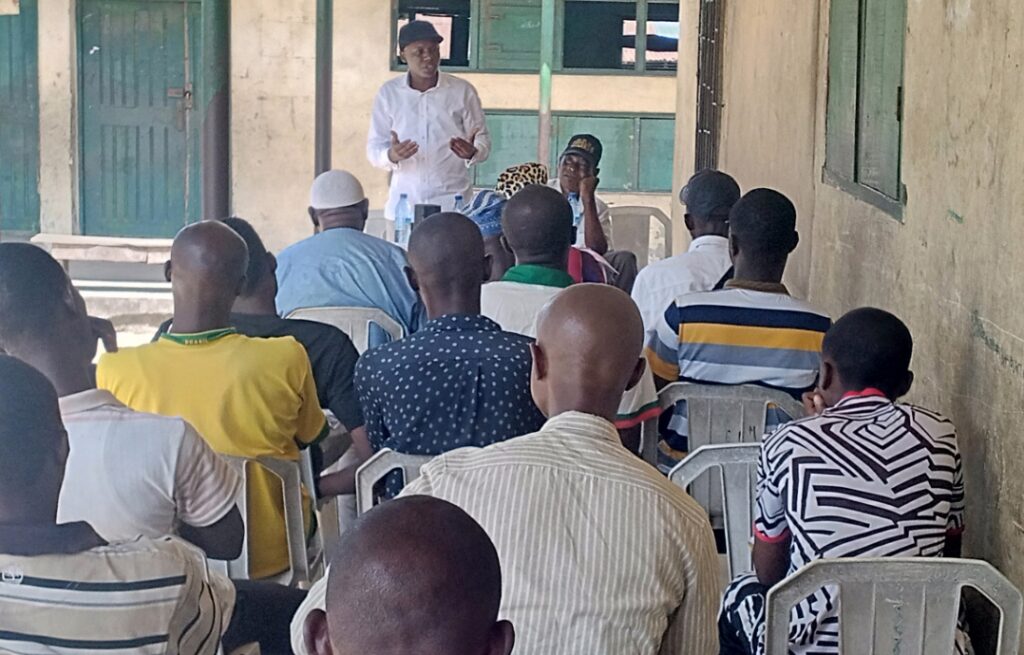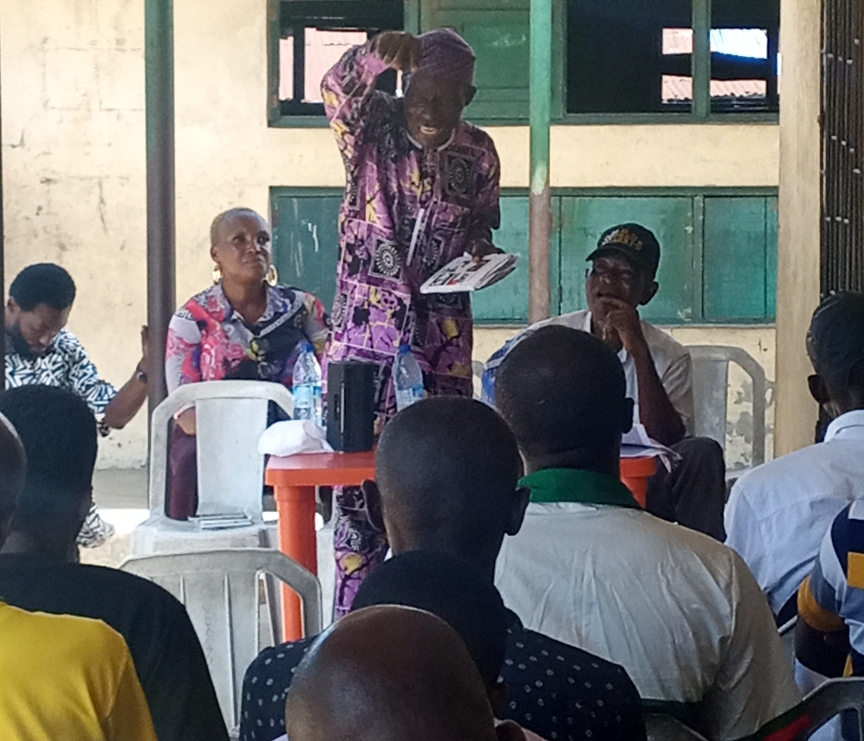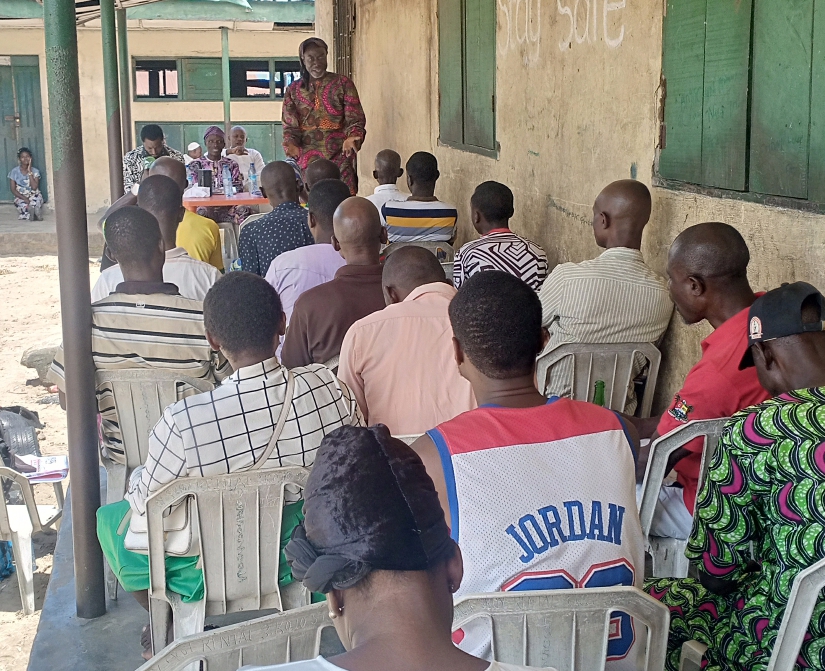NIGERIA AT 63: MSA HOLD A PUBLIC SYMPOSIUM IN LAGOS
NIGERIA AT 63: MSA HOLD A PUBLIC SYMPOSIUM IN LAGOS
As the government set to celebrate the annual Independence Day extravaganzas as usual, the reaction among many Nigerians is if there is any justification for any celebration in the mix of harsh economic crisis ravaging the mass of the people. The country is witnessing the crisis of neoliberal capitalist policies of the Tinubu regime, a policy continuation of previous administrations.

When the Tinubu regime came to power, the first thing was to demonstrate that his regime would stick to the dictate of the IMF/World Bank by hiking the cost of petrol (in the pretence of subsidy removal), thereby resulting in a high cost of living.
The Movement for a Socialist Alternative (MSA) used the occasion to put together a symposium to discuss the alarming state of the economy and how the working masses can fight back. With more than thirty people present, the symposium was a huge success, having workers, youths and community members in attendance.
The event was moderated by comrade Babs, who opened up the event with solidarity songs, followed by an invitation of speakers to the high table, among which includes Mr Adebayo Adedeji, a member of Movement For African Emancipation, Mr. Kehinde Adeoye, the Lagos state chairperson of Committee for the Defense of Human Right, Mr Joseph Chukudi Chairman of Labor Party, and Comrade Emeka Bosah a community activist.
Comrade Adams, MSA organising secretary, gave the opening remarks, thanking attendees and speakers for honouring the invitation of the MSA. He highlighted various issues affecting the Nigerian state: cost of living, increase in fuel price, insecurity, and fee hike across Nigerian universities. Issues that point to increasing anti-poor policies and attacks on the living conditions of workers and poor masses by the Tinubu regime were raised. Hence, he concluded that there is an urgent need for workers’ unity and an independent organisation of the working masses and poor to fight back against these growing attacks.

Comrade Bayo gave historical and cogent analyses, x-raying the state of the nation and the health sector, and narrated how Nigerians were dying daily when he was with his mother at Lagos State Teaching Hospital. This factor aroused activism in him. “There was no bed space, people could not afford hospital bills, and people were dying of curable illness because they are poor”. The ruling elite has distorted the history of Nigeria to exclude those who fought for our independence- the “AGBEKOYAS”, the Aba women protest and the labour movement. The colonial administration and the Nigerian ruling elites have destroyed the Nigerian economy by implementing privatisation against communalism, which prioritises collectivism as against profit and individualism, which questions the rationality of our independence and how we got it wrong.

Comrade Kehinde quoted Professor Wole Soyinka, who described “Nigeria as a damaged vehicle that requires an engineer to fix it”. He questioned why the sixth-highest oil-producing nation in the world could not refine its own crude oil for local consumption, stating that Nigeria remains the only oil-producing country that continues to take its crude oil outside the shores of Nigeria to refine because it is more profitable for the country’s gang of corrupt politicians who have built personal refineries outside the country with stolen public funds.
The country’s four refineries have remained comatose despite billions of naira spent yearly for its turn-around maintenance; according to him, they have become conduit pipes used to siphon and divert public funds. Tracing the history of Nigeria to the 1914 Amalgamation, he said Nigeria is 109 years old while noting that neo-colonialism had replaced colonialism. Bad leadership, according to him, was the major problem confronting the nation, and he concluded that Nigerians must unite to confront the ruling elite.
Comrade Joseph, in his contribution, pointed out some of the things he thinks have gone wrong with the country; he talked about the entrenchment of corrupt capitalist politicians who continue to recycle themselves through election rigging and manipulation, the prevalence of ethnic and divisive politics, growing poverty, unemployment and restiveness among the youths and judicial corruption amongst others and asserted that we can only get it right when we organise in our numbers to challenge the Nigeria ruling elites.
Comrade Dagga, in his summation, elaborated on slavery, colonialism and independent struggle as a basis for understanding capitalism’s systemic problem. Neocolonialism and imperialism formed the fulcrum of current economic policies and anti-people programs, which the corrupt ruling elites continue to push down our throats. The dictates of the IMF and the World Bank to the Nigerian economy have continued to pauperise Nigerians, while the ruling elite are getting richer through an increase in the price of petrol in the name of subsidy payment.

The need to organise, educate and build a revolutionary organisation as a basis for a socialist transformation of the Nigerian society and socialist alternative is a collective task we must all key into. In all, thirty-eight persons attended the symposium and fourteen copies of the paper SOLIDARITY were sold.
